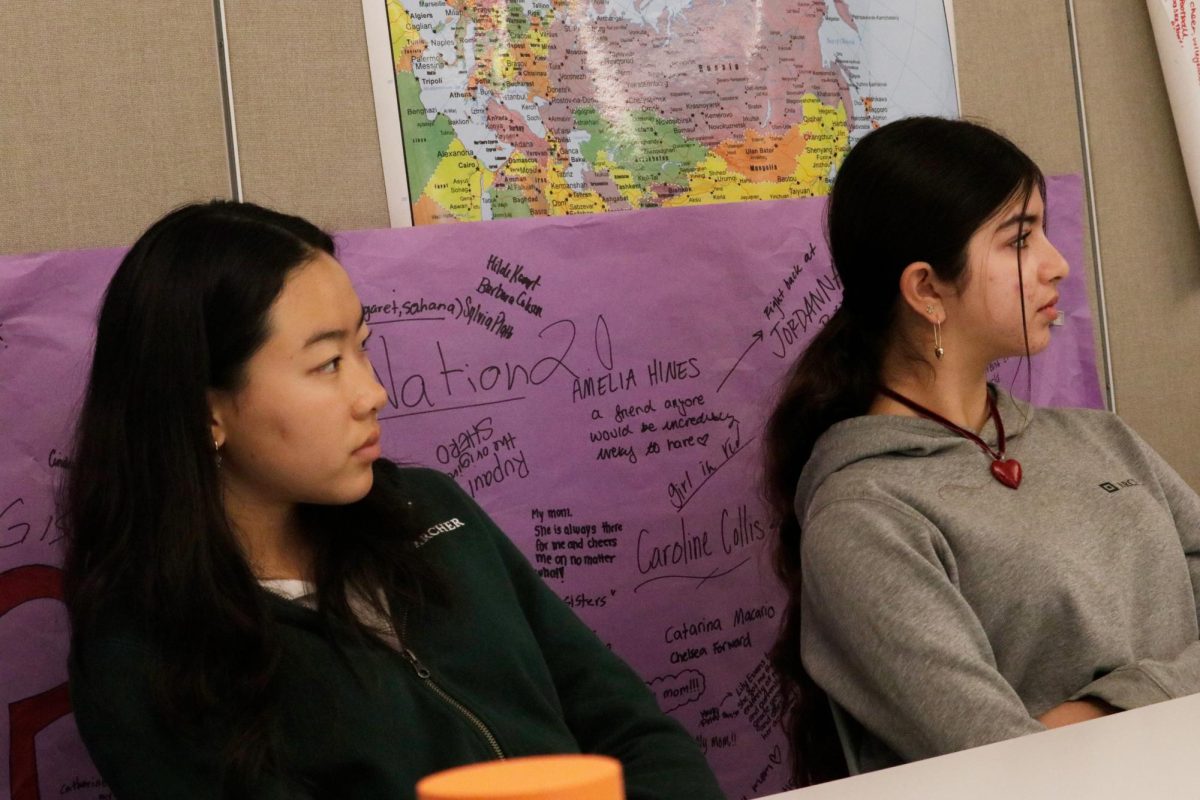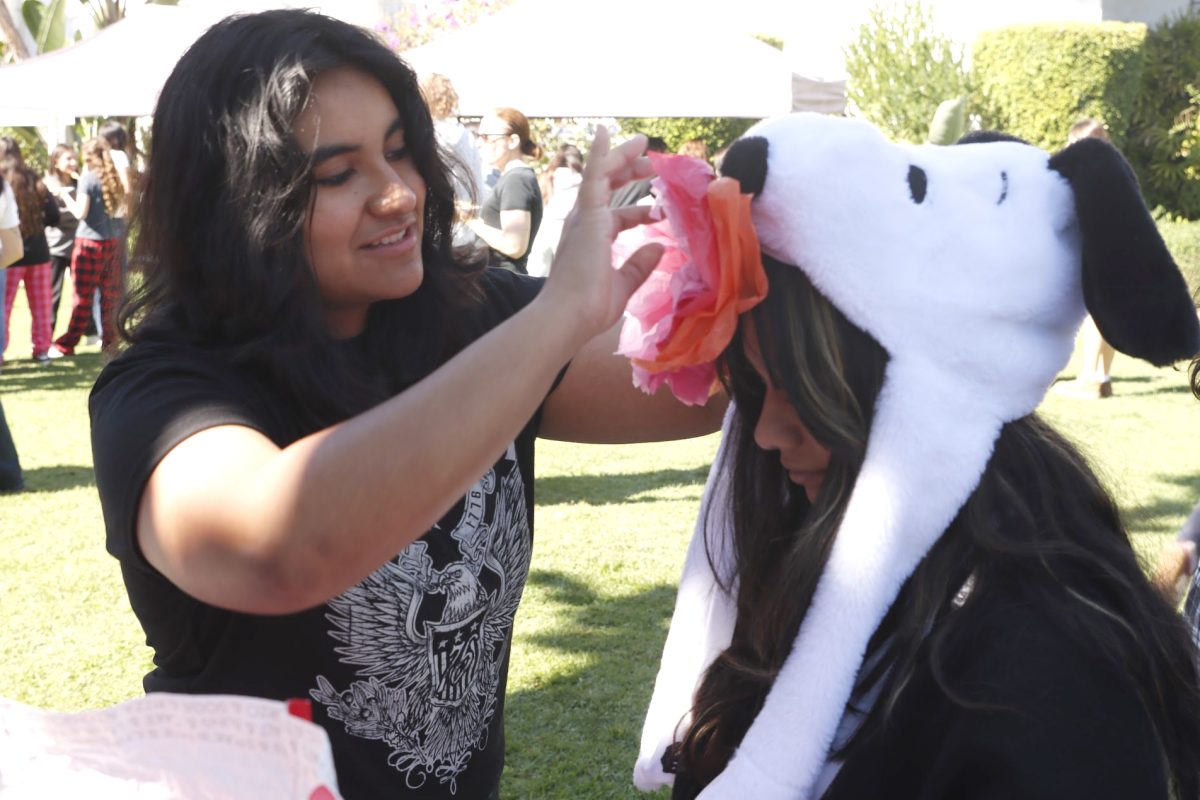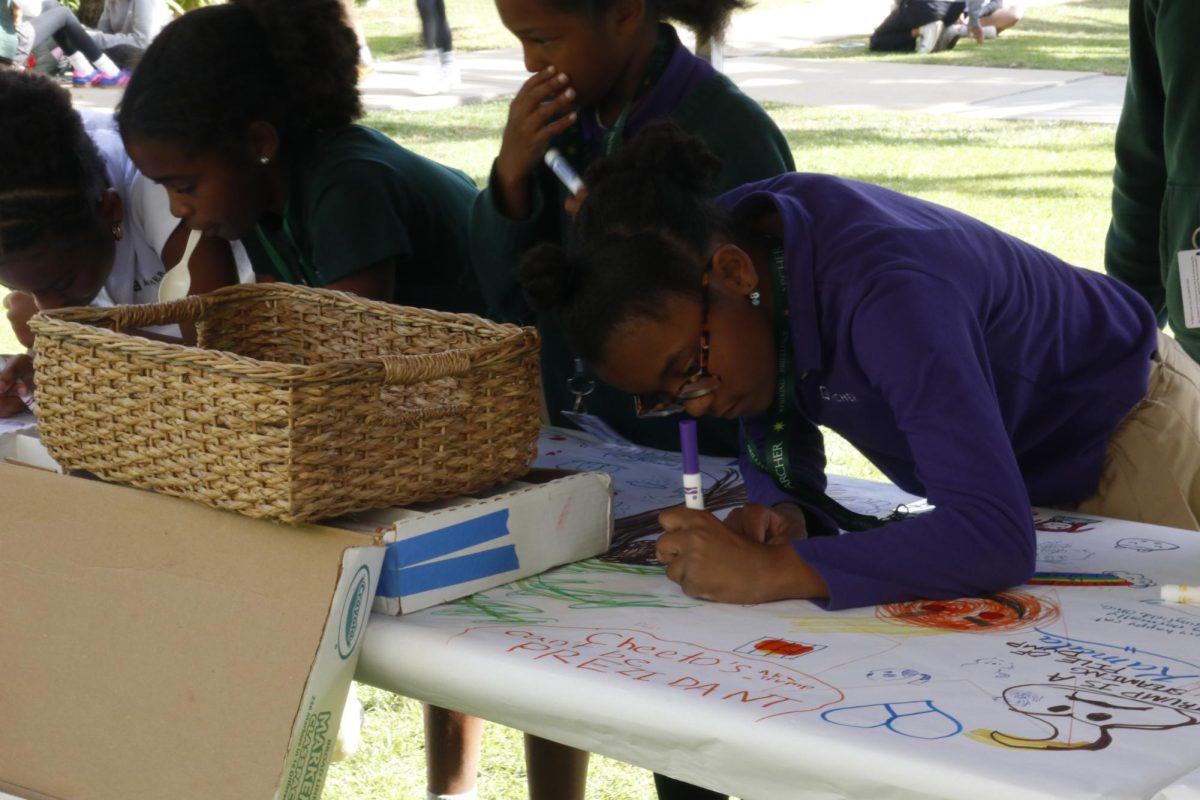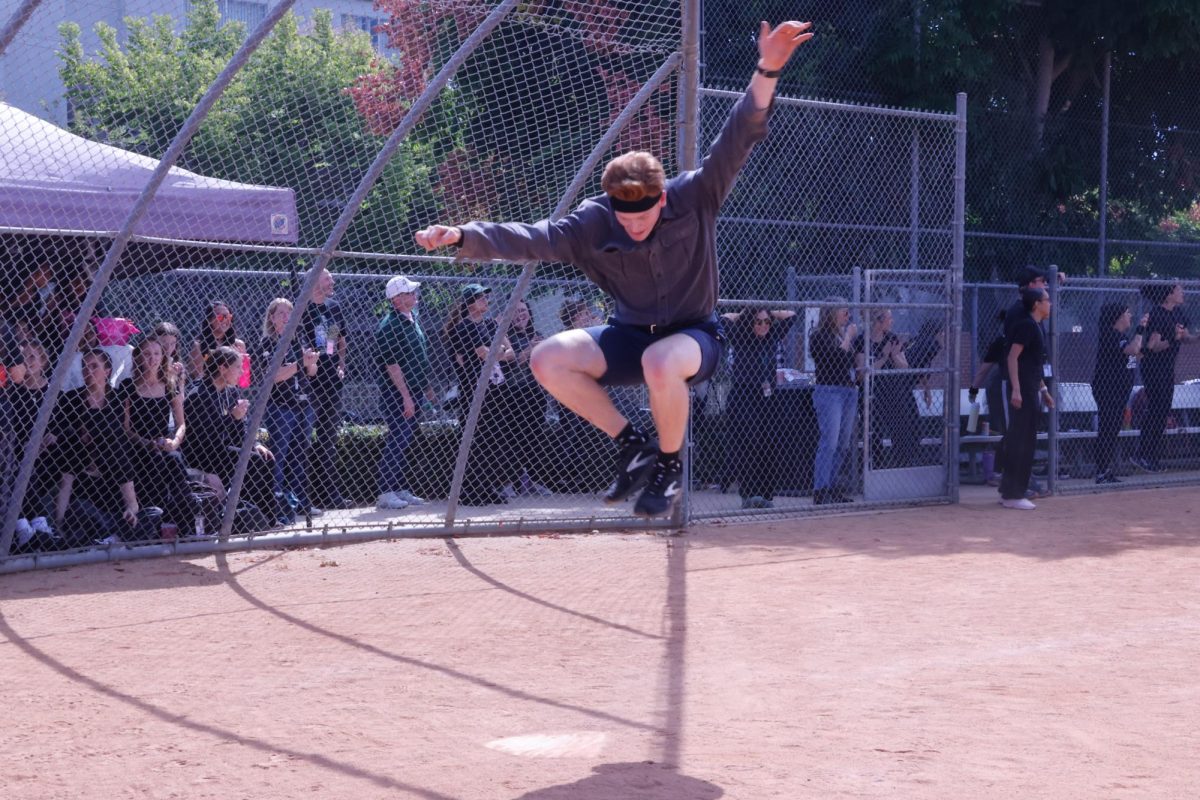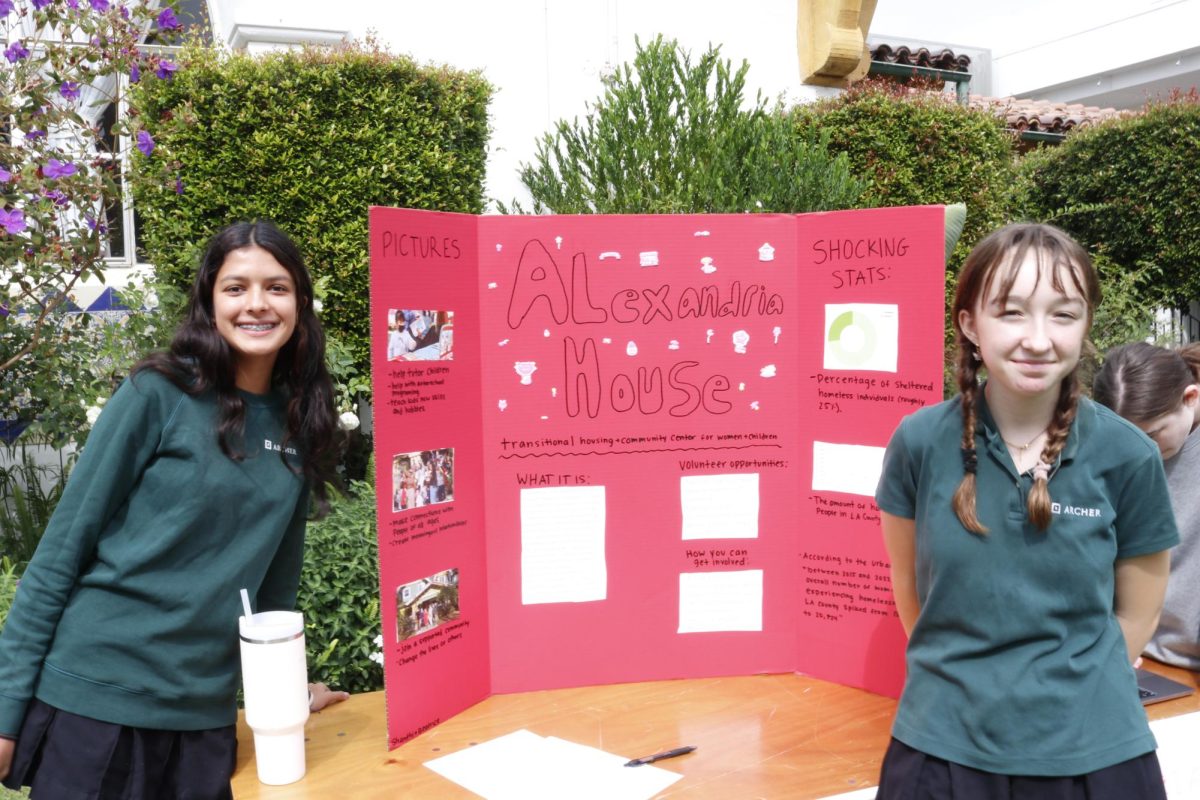For minors in Florida under the age of 13, say sayonara to your Snapchat account Jan. 1, 2025, when all social media accounts for this age group will be banned under Florida Governor Ron Desantis’ new state legislation CS/CS/HB 3: Online Protections for Minors. The bill will also create restrictions for minors aged 14 and 15’s social media accounts.
This legislation was the focus of the second ArtemisEngage event Friday, April 19, during FLX Block. Juniors Lucy Williams and Sophia Shin hosted the event, and around 12 students and teachers gathered in history teacher Beth Gold’s classroom to discuss the bill. ArtemisEngage’s initial conversation centered around Californian public schools’ role in notifying parents if their student decided to identify as something other than their sex assigned at birth.
Chairs and tables formed a circular shape, creating an open environment where all participants could see each other during the discussion. Shin and Williams began by recapping background information about the bill, which was sent to all students who completed a participation form. Following the recap, the leaders outlined discussion guidelines that follow Archer’s courageous conversations model and set ground rules for a successful civil discourse.
Participants then shared any initial thoughts or questions they had about the bill and its potential impacts. From there, Williams and Shin provided potential topics and questions to the group and allowed for a socratic-seminar type design where anyone could speak without raising their hand.
Freshman Ashley Chan said she attended the discussion for the first time because of her interest in discourse.
“I wanted to come because I’ve always liked reading the news and keeping up with new legislation that’s being passed in the United States,” Chan said. “And I was interested in actually discussing it with other people outside of my family and with my classmates at school.”
Students shared opinions about what role parents should have in controlling their teen’s social media habits and if this law would infringe on parental rights and freedom of speech.
Tenth grader Caroline Collis said she appreciated the student-led aspect. She said she noticed as the conversation progressed, her fellow students felt more comfortable speaking to each other.
Chan added that she found the model to be helpful in allowing everyone to have a chance to speak in a free-flowing manner.
“The prompts that we kind of use in the second part of the discussion — they really allow us to guide the conversation, but they just give guidance first on what we’re going to talk about, but they don’t really control it,” Chan said. “I think it’s really nice because it allows a conversation to go to whatever area we want it to go in, and it allows us to bring up ideas of topics that we wouldn’t have otherwise brought up.”
A main goal of the discourse was to broaden students’ opinions and learn their peers’ diverse perspectives on the topic. Collis said she felt discussing an issue outside of Archer’s own community and state was important. She said she left ArtemisEngage curious to know more about Florida’s new legislation on social media restrictions for minors.
“I think it’s important to learn different perspectives, especially when we’re talking about something that isn’t quite directly impacting us,” Collis said. “And I want to hear more from the people actually living in Florida.”
Some students said limiting social media can be positive for their own social development and mental health. The group discussed how creating more tech-free activities at Archer and in their own communities could push teens to be on their devices less.
Chan said she felt having diversity in attendants, from teachers to upper and underclassmen, was essential in having a well-rounded conversation.
“Everybody has this one opinion and perspective on a certain topic, but hearing others, specifically other students who are your age, a little older than you or a little younger than you, is really nice because you see a different outlook, and you learn something new,” Chan said. “Nobody’s there to change your perspective, but it just opens you up and maybe changes what you originally thought slightly.”



